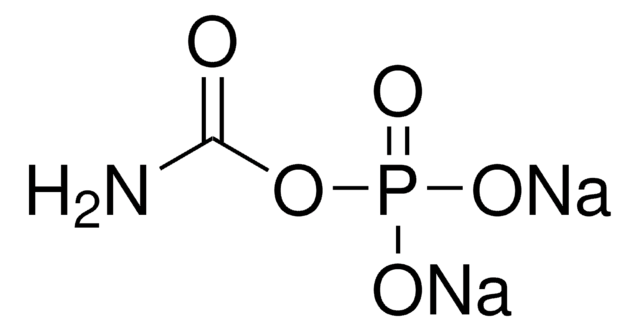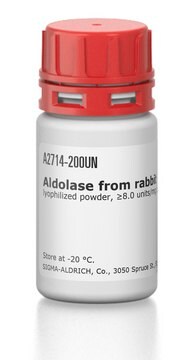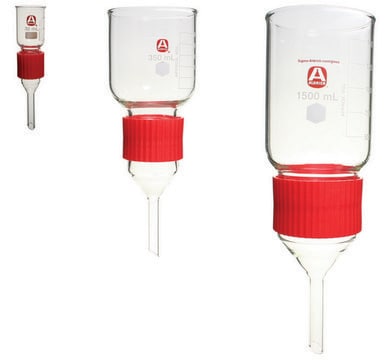M6756
Microperoxidase (MP-11) sodium salt
≥85% (HPLC)
Synonym(s):
Microperoxidase-11, heme undecapeptide of cytochrome c
Sign Into View Organizational & Contract Pricing
All Photos(3)
About This Item
Empirical Formula (Hill Notation):
C84H116FeN20O21S2
CAS Number:
Molecular Weight:
1861.92
UNSPSC Code:
12352204
NACRES:
NA.54
Recommended Products
Application
Microperoxidase (MP-11) has been used in a study to assess its electrochemistry by cyclic voltammetry with multi-walled carbon nanotubes (MWNTs). It has also been used in a study as a label to investigate electrochemical immunosensing.
Biochem/physiol Actions
The oxidation of methyl phenyl sulfide to methyl phenyl sulfoxide by Microperoxidase-11 was promoted by low concentrations of alcohol but inhibited by high levels in the solvent.
Other Notes
The proposed structure is the heme portion of the cytochrome c molecule with amino acids 11-21 still attached.
Preparation Note
Prepared by enzymatic degradation of equine heart cytochrome c.
Storage Class Code
11 - Combustible Solids
WGK
WGK 3
Flash Point(F)
Not applicable
Flash Point(C)
Not applicable
Personal Protective Equipment
dust mask type N95 (US), Eyeshields, Gloves
Choose from one of the most recent versions:
Certificates of Analysis (COA)
Lot/Batch Number
Don't see the Right Version?
If you require a particular version, you can look up a specific certificate by the Lot or Batch number.
Already Own This Product?
Find documentation for the products that you have recently purchased in the Document Library.
Direct electrochemistry of microperoxidase11 using carbon nanotube modified electrodes
Wang, M., et al.
Journal of Electroanalytical Chemistry (Lausanne Switzerland), 578, 121-127 (2005)
Different strategies to develop an electrochemical thrombin aptasensor.
Mir, M., et al
Electrochemical Communications, 8(3), 505-511 (2006)
A heme-peptide as an ultrastructural tracer.
N Feder
The journal of histochemistry and cytochemistry : official journal of the Histochemistry Society, 18(12), 911-913 (1970-12-01)
Amperometric immunosensing using microperoxidaseMP-11 antibody conjugates
Padeste, C., et al.
Analytica Chimica Acta, 374, 167-176 (1998)
Xiaoli Zhu et al.
Biosensors & bioelectronics, 22(8), 1600-1604 (2006-08-15)
Direct electron transfer reactions of microperoxidase were achieved with the help of semiconductive zinc oxide nanoparticles on a pyrolytic graphite electrode. The enzyme could also exhibit fine electrocatalytic activity towards the reduction of hydrogen peroxide. Thereby, a hydrogen peroxide biosensor
Our team of scientists has experience in all areas of research including Life Science, Material Science, Chemical Synthesis, Chromatography, Analytical and many others.
Contact Technical Service








